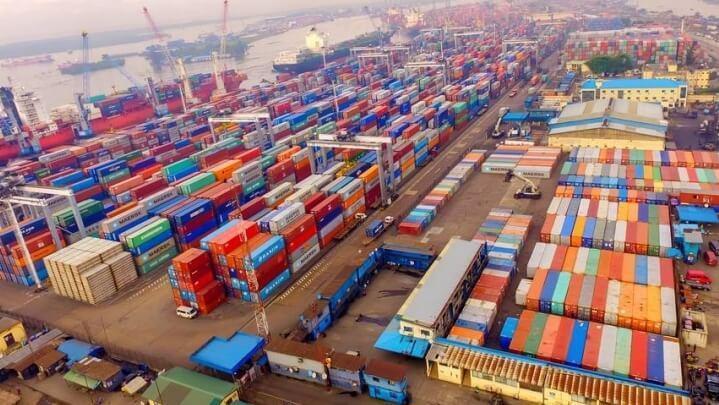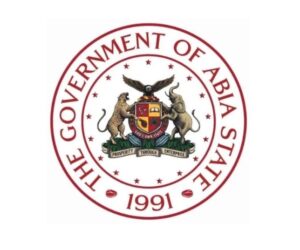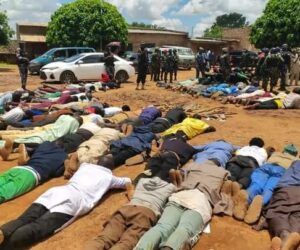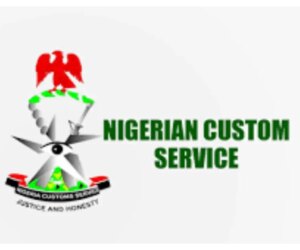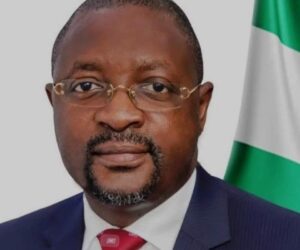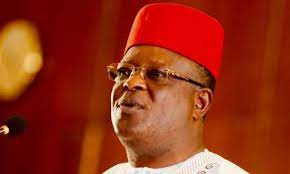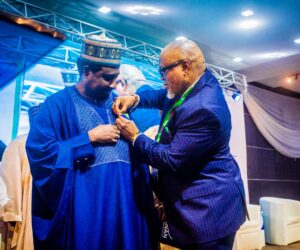Nigeria’s ports are heaving with cargo, yet the wealth they generate slips away. Almost every container that arrives or departs sails on foreign-owned vessels, leaving freight earnings worth billions of dollars beyond the reach of Nigerians.
The Ministry of Marine and Blue Economy estimates that more than 180 million tons of cargo move through Nigerian waters each year, commerce worth over $6 billion in freight charges. Yet nearly 80% of that money goes abroad, leaving Nigeria with crowded ports but little ownership of the wealth they generate.
At an industry meeting in Lagos recently, concerns were raised over how Nigerian shipping firms have long struggled to access financing to build or acquire vessels. Even for those willing to invest, there are no guarantees financiers can trust them.
“I am not going to invest $8 million to go get a vessel, bring it here, wait six months for regulatory pre-clearance and begin to fight for cargo guarantees,” said Jani Ibrahim, national president of the Nigerian Association of Chambers of Commerce, Industry, Mines, and Agriculture (NACCIMA), who was represented.
“I think the first thing we need, according to the Marine and Blue Economy Policy, is cargo guarantees. With it, we’re able to approach the development finance institutions (DFIs) for financing, because that becomes the basis of a bankable feasibility study. If we want to move the needle on vessel ownership, this is critical,” he said.
He pointed to companies like Dangote’s fertiliser plant in Port Harcourt, which ships products across Africa on foreign ships. This month, the Dangote refinery will begin distribution of fuel on imported CNG trucks, arriving on Chinese vessels.
“Those are the kinds of contracts Nigerian shipping companies should be lifting. But until cargo guarantees are in place, we’ll remain sidelined”, he added.
Adegboyega Oyetola, Minister of Marine and Blue Economy, during the event, stated that he had approved the full disbursement of the stalled Cabotage Vessel Financing Fund (CVFF) worth about $700 million to ‘qualified indigenous shipowners.’
But acquiring a vessel is only the first hurdle Nigerian shipowners must clear.
Only recently, the first wholly owned indigenous container vessel, acquired by Clarion Shipping, arrived on Nigerian waters. The ship, Ocean Dragon, is 90 metres long with space for 349 containers, which, according to the NPA, is small by global standards, where vessels now stretch nearly 400 metres and carry over 26,000 containers.
It is the first ship to be owned by a Nigerian since the country’s previous carrier, the Nigerian National Shipping Line (NNSL), was liquidated in 1995. Yet, it has not been a smooth sail, as the company has struggled to break even despite a long struggle to get financing from banks.
Dantsoho recalled how the NPA and APMT supported the vessel’s debut on a historic run between Onne and Calabar, the first such container movement in Nigeria’s history.
“The aim was that once you open Onne, Calabar, and the generality of commercial traders in the east realised that it’s cheaper. Then, instead of taking your containers on trucks, you better go and use Ocean Dragon,” he said
But after the sheets were balanced, Clarion Shipping began counting losses. “By the time we were done with the operations, they could not make even one kobo of a profit from it. They had to look for security, and for so many other logistic support. That was not part of the business at all. In a normal environment, that vessel would have gone without any security and NPA constraints. So we have come back to the drawing board,” he said.
Nigeria’s ports are part of the problem, industry officials said, as even some foreign vessels avoid the country altogether, deterred by shallow drafts, aging cranes and congested terminals.
“On a normal day, the country with the biggest population in a region also has the biggest port,” said Abubakar Dantsoho, Managing Director of the Nigerian Ports Authority (NPA), referring to the Los Angeles port in the US which is the largest economy in North America, Hamburg in Europe, and Shanghai in Asia.
“But the biggest port in West Africa is Abidjan in Ivory Coast. We are not even number two. As of today, our official volume is two million TEUs…something is missing.”
For Dantsoho, part of what is missing is modern infrastructure. “Tin Can Island was built in 1977. That was 48 years ago. Since then, there hasn’t been any major attempt to repair, upgrade, or rehabilitate the model. Who does that? When the shape of ships is changing,” he said.
Apapa, Nigeria’s largest port, was built in 1913 for smaller vessels. “Now the vessels are 350 metres to 450 metres long compared with the previous 90,” he said. “It’s the reason why bigger vessels go to Tema, to Ivory Coast, and Cotonou.”
The NPA chief, however, assured that contracts who will rehabilitate Tin Can and Apapa have been awarded, with reconstruction slated for late 2025.
This will also come with better equipment. “You cannot use small cranes to operate on bigger vessels,” he said citing the Ship-to-Shore (STS) cranes of the Lekki deep seaport. As early as the first quarter of 2026, the government seeks to secure new heavy-lift gear, coinciding with the rollout of the National Single Window for trade facilitation.
Freight agents pressed on costs that further squeeze local operators, pointing to war-risk premiums that make Lagos more expensive than Cotonou. Nigeria is classed as a “war risk zone” by the Joint War Committee (JWC) in London, which sets global insurance guidelines for shipping.
Because of this, every vessel calling at Nigerian ports, or sailing near Nigerian waters, must pay an additional insurance charge.
Temisan Omatseye, former director-general of the Nigerian Maritime Administration and Safety Agency, said that Nigeria pays up to $400 million in such premiums yearly, a practice that has gone on since 2009.
Ships cleared without occurrence are entitled to an 80% refund but many do not claim them. Omatseye said it was about time Nigeria was delisted “Other countries get delisted, but you have to be deliberate,” he said.

